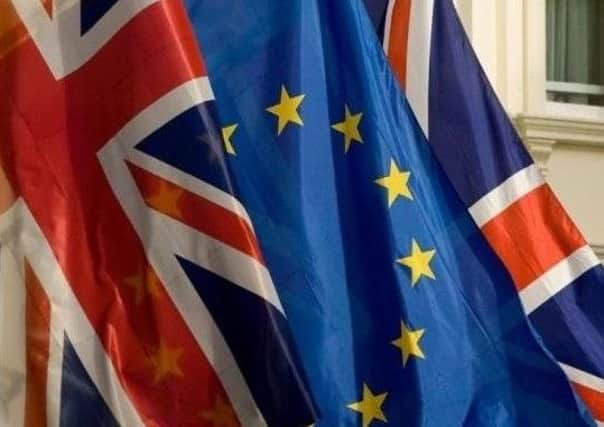William Wallace: Brexit fantasies and reality of a complex world


The British managed without most of this before we joined the European Community in 1973; why can’t we go back to the free trade and sovereignty we had before then?
That sounds simple enough. The argument was put forward successfully in the referendum campaign, and has been repeated in the letter columns of The Yorkshire Post many times since. Except that little in politics, security, economics or trade is ever that simple. The Prime Minister and her Cabinet are struggling to grapple with the complexities of leaving the EU: trying to separate out global obligations and regulations from European and domestic ones, while technological innovation and changing threats keep changing the issues which they confront.
Advertisement
Hide AdAdvertisement
Hide AdWhen Britain joined the EU 44 years ago, most of our economy was British-owned – and a large proportion was state-owned. Now we travel on trains run by international enterprises and pay our utility bills to French or German companies, while we rejoice in the revival of British car exports under Japanese, German and Indian ownership.
It was Margaret Thatcher who launched the privatisation of British industry, and lobbied Japanese banks to invest in projects like the Channel Tunnel. Selling off assets filled the gap between imports and exports, and enabled successive governments to keep taxes lower than they would otherwise have been. But it’s left us dependent on the goodwill of companies and governments across the world – not only on the European continent – and paying dividends in foreign exchange for the indefinite future. And we’re still deepening our dependence. Did you notice George Osborne launching the ‘Northern Powerhouse’, with a Chinese delegation that he hoped would fund the initiative so we wouldn’t have to pay for it ourselves?
Free trade isn’t compatible with total sovereignty. Free trade without multilateral regulation means tax avoidance and fraudulent goods and services, undermining state revenue and consumer safety. New drugs, from which our Health Service benefits, are tested and monitored by international agencies – of which the European Medicines Agency, based in London until we leave the EU, is one of the most important. The internet as it changes rapidly is regulated, in effect, by complex negotiations between US and European authorities. The food we eat is far more widely traded than it was 45 years ago, and its safety is monitored by European, American and global agencies. Two-thirds of Yorkshire’s agricultural trade is with the European continent; so it’s the European regulations that matter most to farmers and consumers.
Could we toughen border controls on foreigners without damaging our own freedom to travel? When Britain joined the EU, there were around 10 million visits a year from Britain to the continent. In 2015, UK citizens made 51 million visits to the rest of the EU. The 13 million British who spend time in Spain each year benefit from EU health arrangements when needed. But criminals and extremists mingle with others crossing frontiers, and we rely on EU security arrangements to track them down. Theresa May has made it clear that we want to stay within Europol and other intelligence networks, although she has not yet explained what we must continue to pay towards these.
Advertisement
Hide AdAdvertisement
Hide AdWe don’t see the 1,500 US servicemen at RAF Menwith Hill, or the French pilots flying patrols to check on Russian submarines in British waters, as invasions of British sovereignty – though strictly speaking they are. British soldiers now deploy to Poland and the Baltic states; British ships take part in EU operations against people-smuggling in the Mediterranean, and against piracy in the Indian Ocean. The Prime Minister has made clear that she wants the UK to stay closely involved in European cooperation in foreign policy and defence, though she hasn’t explained how we will manage to do so once we have left the EU.
Will taking back control save money? We won’t have to contribute to services that we’re no longer part of – but we haven’t yet calculated how much it will cost to re-establish our own trade negotiators, regulatory agencies, our own networks of relations with other governments and multi-national companies to replace the convenience of managing much multilateral business through Brussels. Nor have we estimated how many staff will be needed to manage our customs border if and when we leave the EU Single Market.
The message of the Leave campaign was that Brexit was easy, and cheap, and that we could sweep away the regulations on food and product safety, data protection, manufacturing standards and other areas. Our Government now understands that leaving the EU is difficult and costly, and will not regain full control of our economy or security. But did you really believe those who promised we could have our cake and eat it – reassert full sovereignty and still benefit from free trade and shared security?
Lord Wallace of Saltaire is a Lib Dem peer and former minister.